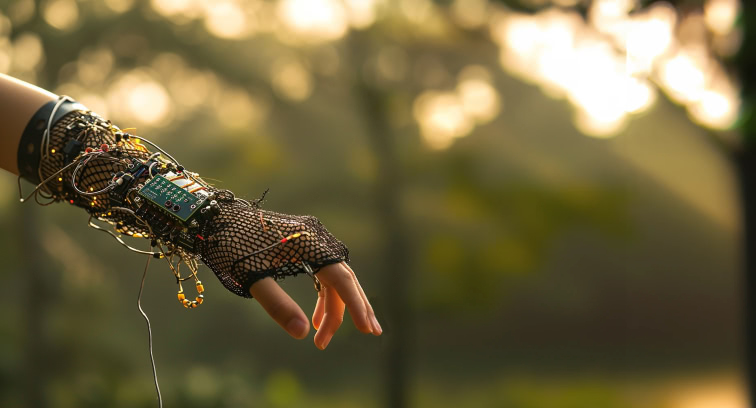Engram

Engram may refer to:
- Engram (neuropsychology), a physical means by which memory traces are stored
- Engram (Dianetics), a term used in Scientology and Dianetics for a “recording” of a past painful event not normally accessible to the conscious mind
See also
By the time you could drive, you could just about say “I love you”. You always made sure I knew, but hearing it in your own voice was something else entirely. At first I found it absurd, that your twitches and spasms were—as the MyoRL blurb informed me—“information-theoretically comparable to conventional communication”, but before I knew it you had blown past “Yes“es and “No“s (and perhaps a more complex sentence, given fifteen minutes) to near-conversational speed. In your youth the choice was between a fluent conversation of aphorisms and cliches or eking out what you really wanted to say one high-entropy sentence at a time. I only realized just how well you took to the interface the day I heard you improvising on the piano, tears rolling down your cheek.
You told me about community center piano recitals and youth symphony auditions and how they lost your suitcase full of books on the way to Interlochen. About getting into Oberlin. About dropping out of Oberlin and busking in Washington Square Park until a pigeon shits in your gig bag and spending the rest of the day figuring out how to wash money. Lying in bed watching paint peeling off the ceiling wondering if the former was lead and the latter asbestos. Getting into Berklee. Gratitude for the professors who ignored the MIDI cable tethering you to your piano and frustration at the students who didn’t. Only half-joking about backpacking Europe to “find yourself”. Learning the hard way never to put instruments in checked baggage. From Bar Marsella to the Windmill. Ironically (or so you claim) reprogramming your vocoder to pronounce it “Barthelona”. Smoke escaping through trellised windows (in the nicer venues with windows). Trying to explain jazz ambassadors to your dubious grandparents. The surprising popularity of bebop in Goa.
You told me about your support group: the lurid stories told in Wallaceian detail, the high-pitched whine of the fluorescent lights you were pretty sure only you could hear, “the abject lack of meter or metaphor in hospital poetry”—those were your exact words. You mentioned an early adopter of MyoRL whose assistive interface learned his fleeting intentions so well that it quit his McJob for him and got him into the world’s most one-sided bar fights. I think there was another one about a talented, successful writer whose interface bandwidth got lower and lower until his sharpest thoughts could only escape as predictable cliches. When I feel things couldn’t get any worse, I think of the dancer who was in such denial she tried Neuralink and got meningitis. You have a gift for describing these sorts of things I sometimes feel was wasted on me.
You told me about signal-to-noise ratios and Fourier transforms, studying digital signal processing as I’d study English—to learn how we communicate. I think you must have known you were going mute before you’d admit it to yourself. You could move even less than before, and MyoRL isn’t magic. On some level, you sounded like your old self, still noodling on an MPC2000 and saying things like “indefatigable”. But somehow it was all… hollow. We used to talk for hours on the deep questions, but (save for very good days) your responses turned monosyllabic: are p-zombies possible? “Nope.” Does life have meaning? “Yup.” It wasn’t really you speaking to me but some poor imitation—except when you wrote me letters, words trickling one by one onto the page over hours or days.
One time you disappeared to the basement for a whole night and emerged with a letter that moved me to tears. You said it felt like everything you had to say had to be chosen from among the three little suggestions on iPhone keyboards (if I remembered iPhones). That expressing yourself via painting or playing piano felt like wading through molasses—though you could still recite Shakespeare and play Rachmaninoff by heart. That the cruelest part of the whole thing was how thrilled your grandparents would have been to see you turn out a robotic concerto-playing polymath with a terminal degree and zero creativity (or at least no way to express it). You wrote, “When I die, put my MyoRL suit on a mannequin and shake it; it’ll be just as impressive to them.” I looked up from the letter to what anyone else would have called a blank face. “Yuuuup,” you said.
This is how I remember it. Am I getting all this right? Say “No” if there’s something I missed. I’ll wait, really. I’m here as long as you need.